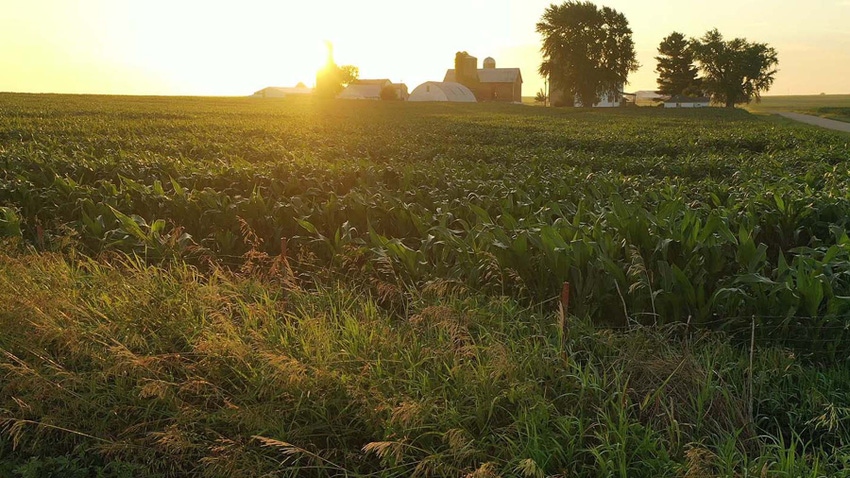
USDA data shows that farm real estate values climbed 12.4% from 2021 to 2022. Gains were even hotter in some key Midwestern production states last year, such as Iowa (+21.4%), Illinois (+12.7%) and Minnesota (+17.4%).
Last year’s statistics weren’t an anomaly, either. Since 2008, farmland prices nationwide are on average around 75% higher today and have only declined two years during that time (2009 and 2016).
“Land is always a smart long-term investment to make,” notes Jason Burbage, President of National Land Realty, a real estate land brokerage company.
However, 2023 could prove to be one of those one-off years where farmland values stabilize or even decline, according to Burbage. That’s because of complications arising from the current environment of high inflation and rising interest rates. But it’s a bit more nuanced than you may think, he adds.
“Urban buyers are definitely cooling off,” Burbage says, noting that since the pandemic began in 2020, city dwellers began to flock to Rural America in search of land for hunting and other recreational purposes. But higher interest rates are beginning to limit those would-be buyers.
Other outside buyers like to consider farmland purchases purely from an investment stance, says Tanner Ehmke, lead economist for grain and oilseeds with CoBank. As interest rates rise, other assets, such as CDs and money markets, become more lucrative for those potential buyers.
“CDs and money markets are easier to handle, and you don’t have to deal with a tenant,” he says. “There’s a relationship you have manage with tenants. It requires more attention – you have to consider how they are preserving the value of your asset.”
But farmers appear to be a bit more immune to the rising interest rate environment – at least for now, according to Burbage.
“Interest rates have not caused a dramatic shift in our market when it comes to farmland and timberland,” he says. “Buyers don’t depend on loans as much for acquisition. We’re still seeing people spending a significant amount for tracts of land and paying cash. They’re pulling the trigger because they still have the funds.”
The other critical thing to consider is basic supply and demand fundamentals, Burbage continues.
“Demand is still there because there’s not a lot of inventory available.”
Survey says
National Land Realty recently conducted its third annual land real estate agent and broker survey. Around two-thirds of respondents are predicting that land values will either level off or slightly decrease this year.
Ehmke holds a similar opinion.
“I think the ingredients are there for land values to plateau at a minimum,” he says.
Unfortunately, cash rent tends to be relatively sticky versus farmland values, Ehmke adds. So don’t expect them to immediately trend lower.
“Today’s rates are based on corn prices two years ago,” he says. “So it doesn’t tend to correlate very well with land values from year to year. However, we’ll see a lot of rent negotiations next year if margins continue to erode.”
At the end of the day, farmers will have to stay focused on their production and other areas of influence, Burbage concludes.
“Unless something crazy happens – and it could – there’s no real point in doing anything but continuing with what you can control,” he says.
About the Author(s)
You May Also Like






